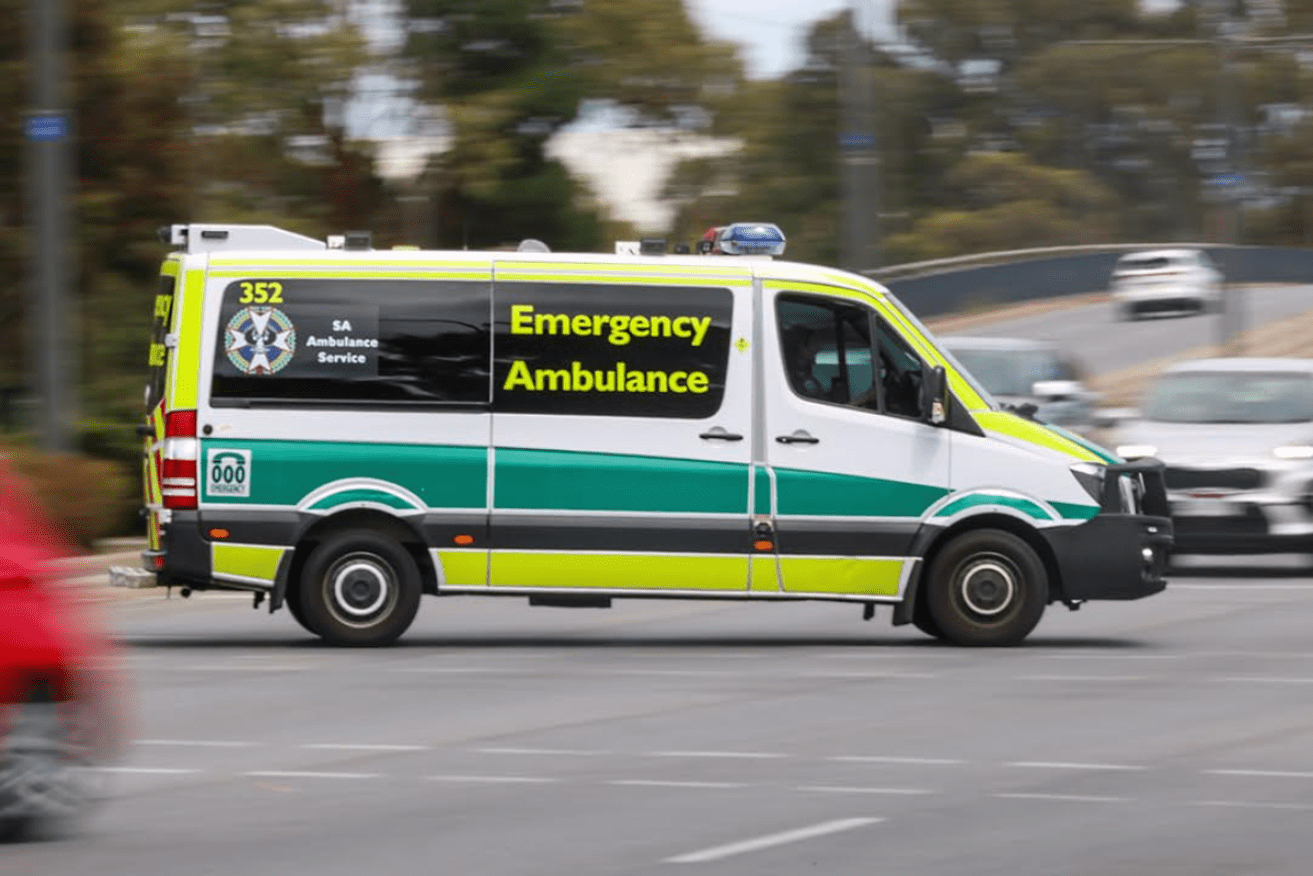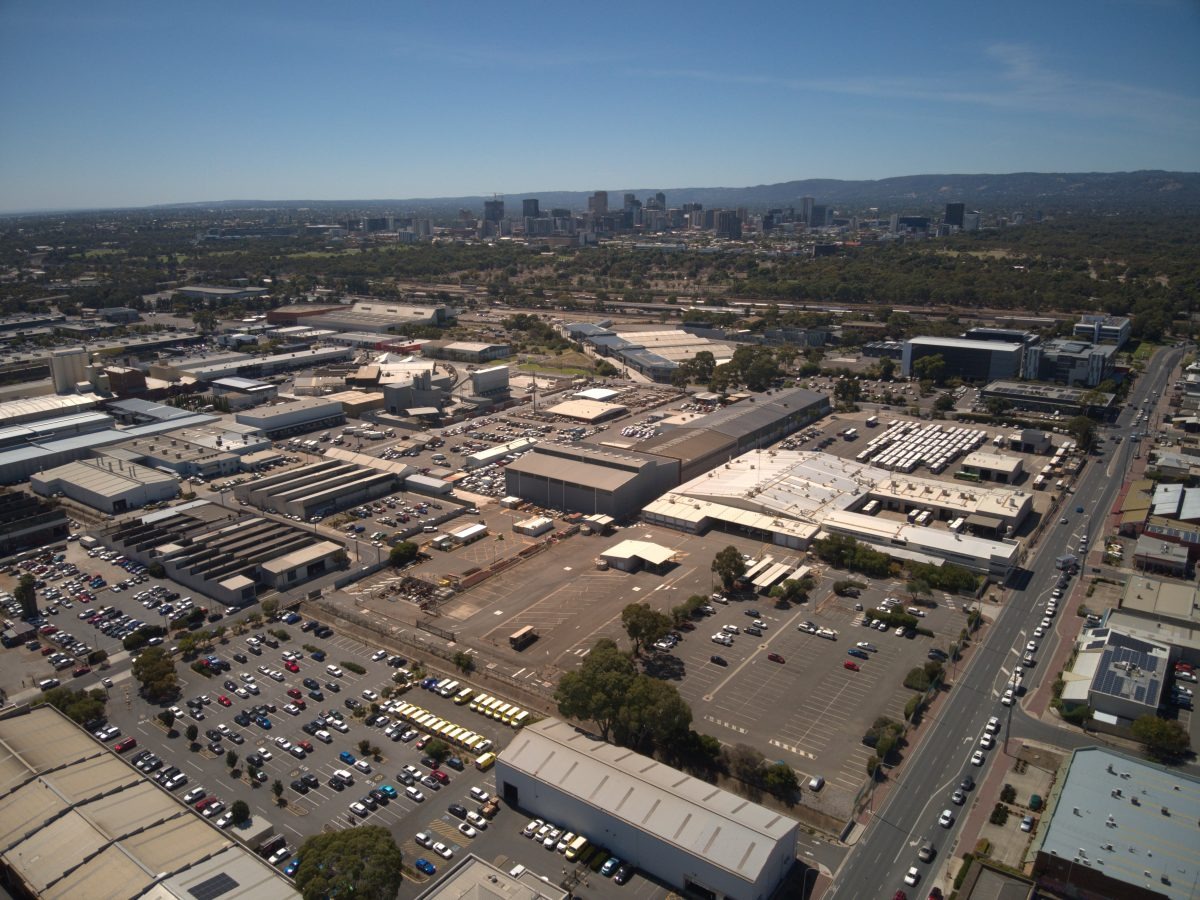Ambulance response times better but an ‘awful lot of work’ still needed on ramping, the Premier says
The Malinauskas Government says it’s been able to address ambulance response times despite persistent ambulance ramping across the state’s hospitals, as the Opposition attacks Labor on health ahead of the Dunstan by-election.


Ambulance response times have improved since Labor took office - but ramping is another story. Photo: Tony Lewis/InDaily
The state government released ambulance response time data on Monday showing a slight decrease in the percentage of priority one and two cases being reached on time by an ambulance.
In February, 70.4 per cent of priority one cases (requiring an ambulance within eight minutes) were met on time, down from 71.5 per cent in January.
For priority two cases (requiring an ambulance within 16 minutes), 64.4 per cent of cases were met on time compared to 65.1 per cent in January. Labor promised before the election to lift the percentage of priority two callouts that arrive on time to 85 per cent.
The Malinauskas Government on Monday highlighted the improvement in ambulance response times since February 2022 – the month before they won the state election on a promise to “fix the ramping crisis”.
Priority one callouts were only being reached on time 58.3 per cent of the time in February 2022 – compared to 70.4 per cent now – while priority two callouts have improved from 54.5 per cent to 64.4 per cent over the same two-year period.
The government says this equates to an additional 1190 South Australians being reached on time in a life-threatening emergency.
However, ambulance ramping outside hospitals remains stubbornly high. The latest figures, released last Saturday, show ambulances spent 3757 hours in February waiting with patients outside hospitals.
That’s more than 2200 hours higher than the 1522 hours recorded in February 2022, although the government attributes this partly to the restart of elective surgeries in hospitals.
The February 2024 ramping result was 203 hours better than the 3960 hours recorded in January 2024, and 528 hours better than November 2023 when South Australia logged a record 4285 ramping hours.
Premier Peter Malinauskas said the response time and ramping data shows “we’ve got progress in one element but an awful lot of work to do in another”.
He said lower acuity cases were the ones getting stuck on the ramp outside hospitals, while category one and two cases “tend to go straight through into the system”.
“We’ve got more ambulances getting to more people on time,” Malinauskas told ABC Radio Adelaide today.
“When they get to the emergency department, what we’re seeing is a cohort of those patients are getting stuck for longer.
“The typical example is if you’re an elderly person who has got a low acuity issue. So you’ve had a fall, you’ve been picked up by the ambo, you get to the emergency department, you’re not an emergency triage case.
“They’re the patients that tend to be getting stuck and getting stuck for longer, and that’s where we need the additional beds in the system to be able to look after them.
“And that of course is the hardest thing in a timeline sense.”
Malinauskas and Health Minister Chris Picton on Monday highlighted that construction is nearing completion on 52 new beds at the Queen Elizabeth Hospital.
The new beds are part of a $314 million new Clinical Services Building due to be finished mid-year. The upgrade was initially funded by the Weatherill Government in 2017 and then expanded by the Marshall Government in 2020.
The Malinauskas Government is expecting 150 new hospital beds to come online this year and 550 over its four-year term.
The Premier said improving both ambulance response times and ramping is important.
“When an ambulance rolls up on time, that means a patient is getting their most urgent critical care at their most urgent and critical time,” he said.
“Now when that patient is picked up and they get to a hospital, of course, we want them getting into the hospital in an appropriate and timely manner.
“But the ambulance has got to get there first – we’ve been able to address that issue.”
It comes as the Opposition continues to push health onto the agenda ahead of next weekend’s Dunstan by-election between the Liberal Party’s Dr Anna Finizio and Labor’s Cressida O’Hanlon.
Early voting for the March 23 poll opened today. Opposition leader David Speirs has repeatedly tried to frame the by-election as a “referendum on ramping”.
Speaking at an early voting centre alongside Finizio this morning, Speirs said the Malinauskas Government has delivered “the 21 worst months of ramping in this state’s history”.
“Our most vulnerable citizens waiting for hours for treatment, and when they get into the emergency department, they wait many more hours in many cases,” he said.
“There is a crisis in our health care system, and it is a crisis of Peter Malinauskas’ making, because he came to office promising the solutions and instead he’s delivered absolutely nothing.”
Speirs declined to reveal any specific policies when asked what his party would do differently if elected to government.
“A policy announced today in a specific sense could be very well out of date in a year’s time.”
He argued that the situation could get worse over the next two years and so the policy requirements will change as well.
“We’ve been really clear that we will be revealing a suit of very detailed policies in the coming months and years in the lead up to the election,” Speirs said.
“Ramping is now so out of control and has deteriorated so significantly from the last state election. If you extrapolate the way this is heading we can expect up to 6000 hours of ramping per month by the time we get to March 2026.
“That is an utter collapse in our healthcare system and it will require such massive intervention in our healthcare system that we will have to assess the state of play at every month as we lead up into the election.
“This is going to need a special type of policy development.”
Speirs said the Liberal Party’s policies will focus on mental health care investment, priority mental health clinics, workforce development, incentives for GPs and “significant investment” in regional healthcare.
“Those broad themes are areas that we will be looking at, and quite frankly that’s what South Australians are asking from us at the moment,” he said.
“They’re not asking for how many beds and what location because the collapse of the healthcare system is so rapid under Labor and with every passing month becoming more and more problematic that a policy announced today in a specific sense could be very well out of date in a year’s time.”
Former premier Steven Marshall held onto Dunstan by 260 votes at the last election. The eastern suburbs seat is the most marginal in South Australia.
New $120m ambulance HQ set for planning assessment

A computer image of the $120 million new ambulance headquarters planned for Mile End. Photo: SA Govt/supplied
Meanwhile, the State Commission Assessment Panel (SCAP) will on Wednesday assess the government’s plans for a new $120 million ambulance headquarters in Mile End.
The new HQ, a pre-election promise, will feature a new emergency operations centre and a state health control centre hosting staff from across different local health networks.
It will also be co-located with a new Adelaide ambulance station, housing two 24/7 ambulance crews (32 paramedics).
The new two-storey health building is slated for a 10,000 square metre site at 71 Richmond Road Mile End. It is currently used for car and bus parking.

An aerial view of the new SAAS HQ site in Mile End. Photo: supplied
Government planning officer Ben Williams has recommended the SCAP approve the project.




